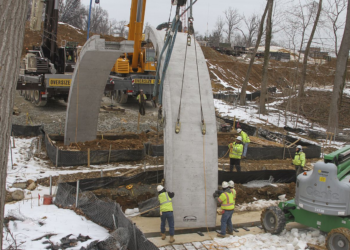Rats ‘as big as dogs’.
A mother pushing her child’s pram down a street piled on either side with rubbish.
These scenes might sound familiar to residents of Birmingham as they continue to endure a strike by refuse workers in the city.
But It is what people in Glasgow had to deal with in 1975, when a mass walkout by binmen in a row over pay crippled the impoverished Scottish city.
In January of that year, around 350 workers began an unofficial strike that lasted more than three months.
Around a thousand tonnes of rubbish each day was being dumped, leading to fears that diseases could spread.
The Army had to step in to clean up the streets and kill any rats they encountered.
It was the first time that troops had been used in an industrial dispute in 25 years.
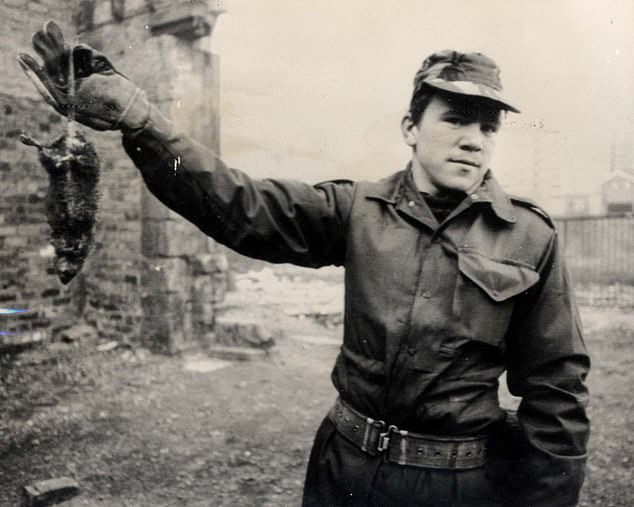
A soldier from the Royal Highland Fusiliers holds a rat aloft in Glasgow after being called in to deal with a build-up of rubbish during a strike by refuse workers
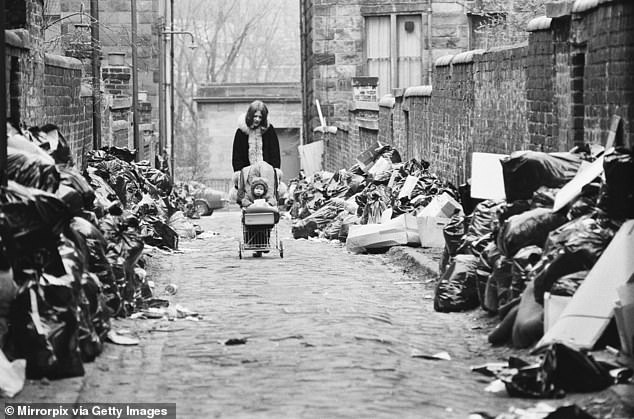
A mother pushes her child down a street lined with rubbish in Glasgow, March 17, 1975
The 1975 strikes came after earlier walkouts in 1973 and 1974.
Refuse collectors were demanding higher wages from the Glasgow Corporation – the forerunner to the city council.
One mother-of-five said at the time: ‘It really is terrible. Right along the whole scheme it’s the same.
‘People are getting people ’round to dump it over somewhere else. Kids are burning it over in the spare bit of ground.
‘The smell is atrocious. We’ve already got the rats starting to get into our houses. That’s one thing we don’t want. Even the flies are going mad.’
Eventually, the Labour government stepped in and deployed 1,500 troops from the Royal Highland Fusiliers to help clear away what had become 70,000 tonnes of waste.
They removed more than half of the build-up before the strikers voted to call off the action and return to work on April 14.
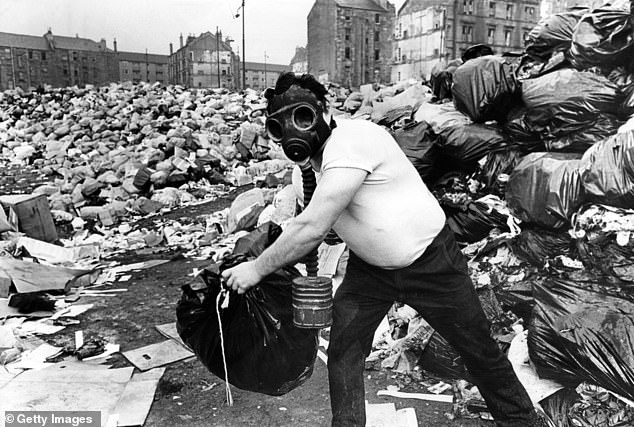
A man wearing a gas mask, among huge piles of rubbish, during a strike by dustcart drivers in Glasgow, March 5, 1975
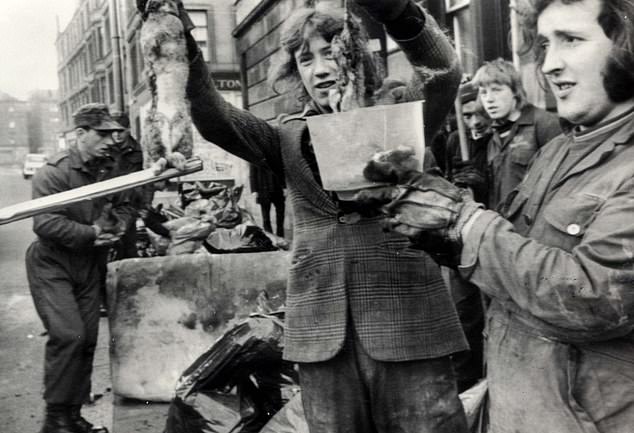
Dustmen in Glasgow hold up a dead rat and rabbit during the strikes
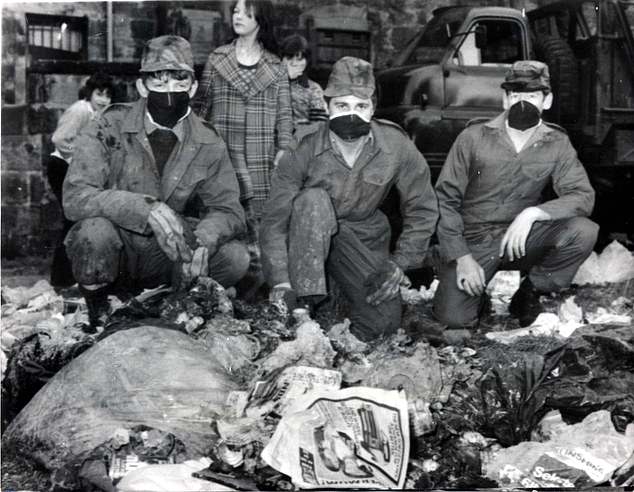
Masked soldiers pose for a picture as they clean up rubbish in Glasgow’s East End
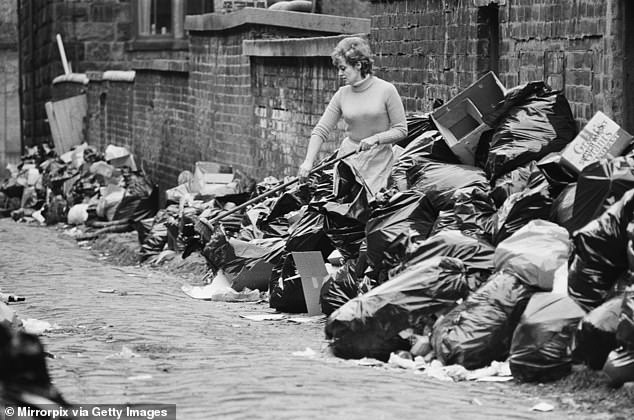
A Glasgow woman uses a brush to sweep outside her home during the strike
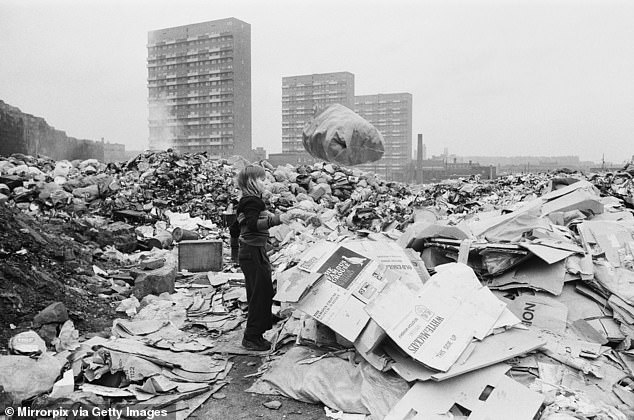
Children play amidst piles of rubbish in Glasgow during the 1975 strike
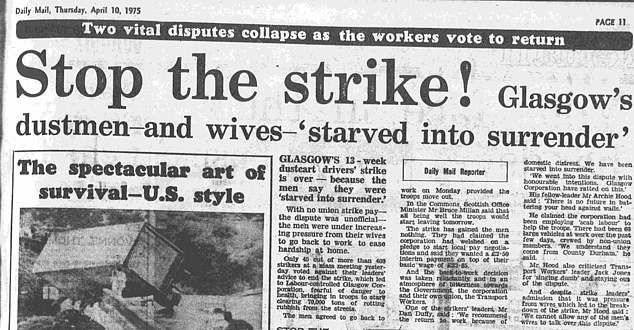
The Daily Mail’s coverage announcing the end of the strike after 13 weeks of action
In early April, the strikers finally voted to call off the action, on condition that the Army move out.
One of the strike leaders said at the time: ‘We recommend the return to work because of domestic distress.
‘We have been starved into surrender. We went into this dispute with honourable intentions. Glasgow Corporation have ratted on this.’
The mass walkout in Birmingham began on March 11 in a row over plans by the City Council to reduce waste collection roles and pay in a bid to shore up its finances.
Rats have thrived in the city’s filth – with pest control expert Will Timms, known locally as Birmingham’s ‘rat man’, revealing some are now as big as small dogs.
Birmingham council claims the daily blocking of depots by Unite union picket lines has meant vehicles deployed as part of a contingency plan are struggling to leave to collect waste.
The council has gone as far as declaring a major incident, which it says allows it to increase the availability of street cleansing and fly-tipping removal with an extra 35 crews around the city.
The move was backed by communities minister Jim McMahon, who said the Government ‘stands ready’ to respond to any request for extra resources



